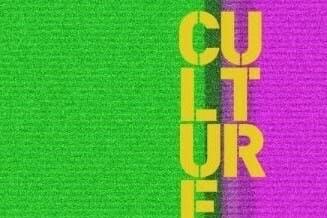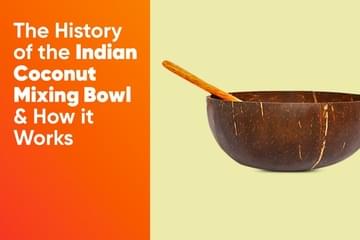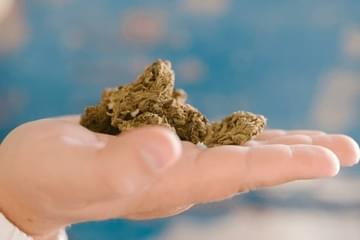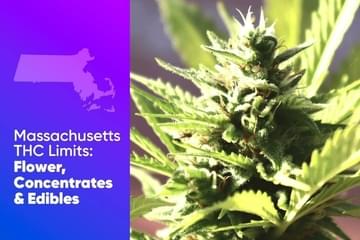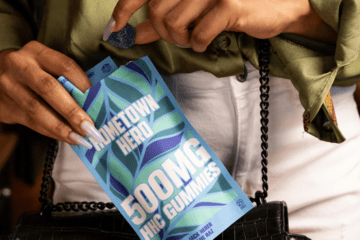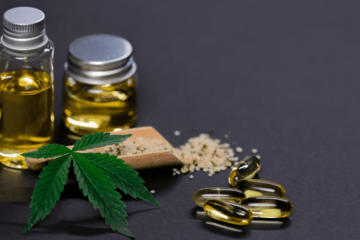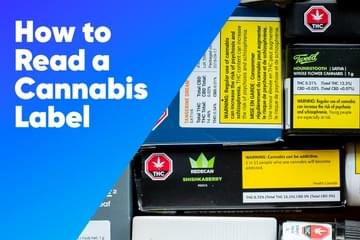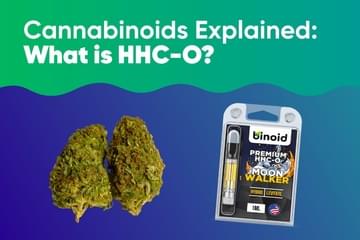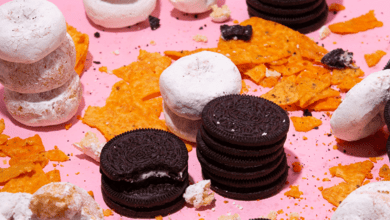
Why Do I Get the Munchies from Smoking Weed?
Published on 2/14/21
One of the many well-known side effects of smoking weed is getting the munchies - it's both an ageless joke and an absolute reality. If you're a cannabis enthusiast, chances are good that you have a go-to snack stowed away just for the occasion. We all know weed munchies are a thing, but why do you get the munchies in the first place? What kind of weed makes you hungry and is there a way to not feel the effect of the munchies? Fortunately for you, while there are relatively few studies about marijuana, scientists have discovered several aspects of cannabis that help answer these questions.
Explaining Weed Munchies
 Unsplash
UnsplashJust in case you don't have experience with cannabis, here's a basic munchies definition: an overwhelming craving for food caused by consuming marijuana. That's it. Regardless of whether you've recently eaten or what type of consumption method you use, a good high often results in an unwavering appetite. If you're wondering how to stop the munchies, the only guaranteed answer we have is this: don't smoke weed. Beyond that, your options are fairly limited:
- Stay busy to keep your mind off your appetite.
- Hide your snacks before you smoke.
- Drink lots of water and brush your teeth after smoking.
- Give in to the craving.
How high you get does affect how hungry you may feel. So, if you want an intense case of the munchies, you might want to consider micro-dosing. Additionally, while we don't fully understand what types of strains might have less of an effect on the appetite, there is reason to believe that sativas are more likely to cause hunger. Sativa strains often contain higher concentrations of the cannabinoid THCV, which studies suggest cause appetite suppression. We will go over THCV later, but for now, let's focus on answering "why does weed make you hungry in the first place?"
How Weed Causes the Munchies
 Unsplash
UnsplashTHC stands for tetrahydrocannabinol. Along with CBD (cannabidiol), it is one of the two primary cannabinoids found in marijuana. THC is the psychoactive chemical compound within cannabis that causes the high you feel when you smoke, and it also happens to be responsible for that undeniable craving we call the munchies. Both CBD and THC interact with our endocannabinoid system, which contains CB1 and CB2 receptors. Because THC has a very similar molecular structure to CB1 receptors, when consumed, the THC from marijuana binds to them. Found in our nervous system, brain, liver, kidneys and lungs, these receptors also help reregulate pain, memory, emotions and appetite. CBD generally binds to our CB2 receptors, and while there are many similarities in medicinal applications, CBD does not cause appetite stimulation (or psychoactive effects, for that matter).
Our bodies naturally create cannabinoids to regulate our endocannabinoid system. However, when we partake in weed, we are ingesting compounds like THC that will fit into the receptors. This causes our endocannabinoid system to react at intensifying levels. The same systems that alleviate pain and alter our moods and perceptions are also responsible for the intense hunger we often feel after smoking. Recent research has helped us dive deeper into understanding why these receptors affect us this way.
Another reason we become increasingly hungry when we smoke is the location of most of our CB1 receptors is the brain's olfactory bulb, which is responsible for our sense of smell. Recent studies indicate that this increase in smell and taste intensity may be a big reason why we eat more when we smoke. Other research suggests that there are CB1 receptors located in our nucleus accumbens, which is a region of the brain responsible for releasing dopamine. Since dopamine causes the sensation we call pleasure, THC might also artificially stimulate pleasure, which then heightens our senses and drives our desire to eat.
How Can the Munchies Be Medically Beneficial?
 Unsplash
UnsplashWhile its federal classification as a Schedule I drug would suggest that marijuana has no medicinal properties, 33 states currently have a medical marijuana program because of the potential benefits associated with marijuana consumption. Medicinal marijuana acts as both an appetite stimulant or an appetite suppressor, it just depends on the strain.
Cannabis as an Appetite Suppressor
You may be wondering, how can weed suppress your appetite when it gives you the munchies? THCV (tetrahydrocannabivarin) is one of the hundreds of cannabinoids within the cannabis plant, but it differs from THC in that it acts as an antagonist to the CB-1 receptors in your brain, causing appetite suppression. While not much is known about THCV, studies do suggest that it may help with a variety of conditions, including overeating, frequent panic attacks and diabetes. As mentioned above, sativas are more likely to have higher THCV levels.
Cannabis as an Appetite Stimulator
On the other hand, THC's ability to stimulate the appetite positively affects individuals undergoing chemotherapy, who often have difficulties eating (marijuana also helps alleviate other symptoms of chemotherapy, including insomnia, nausea and vomiting). Additionally, marijuana helps to combat eating disorders such as anorexia and bulimia. So, while the munchies might be an enjoyable side effect of smoking for recreational users, it has also proven to be a medicinal aid to many.
The munchies are a funny phenomenon that every experienced cannabis user understands. Comment below with you're favorite snacks and any tips you have for combatting the munchies.








